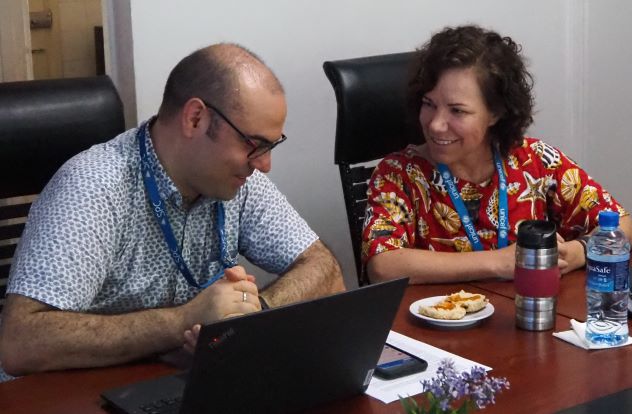Related News

The first Pacific Regional Education Framework (PacREF) Implementing Agencies (IAs) Fono for 2023 was held virtually on Friday, 27 January to discuss the ongoing implementation of Phase 1 of the PacREF programme with great emphasis on strengthening regional collaboration and integration among stakeholders.
Implementing Agencies (IAs) also discussed the PacREF’s Annual Implementation Plan Review for 2022, the Mid-Term Review (MTR) recommendations, the Conference of Pacific Education Ministers (CPEM) that will be held in Auckland on 20-22 March and other events planned for the year.
PacREF Facilitating Unit Coordinator (PFU), Mr Filipe Jitoko said “PFU is committed to working with the implementing agencies, regional partners and our member countries’ focal points to ensure effective collaboration and partnerships amongst all stakeholders are strengthened in the implementation of the PacREF programme.”
“An important function of the PFU is the coordination of all stakeholders in implementing PacREF to ensure efficient use of resources and recognising the limited capacity and time of the participating countries to which they can commit to the Programme. This is important if we are to achieve our Pacific leader’s vision for the PacREF and ensure that the Programme delivers the best education outcomes for all Pacific people”.
The Pacific Regional Education Framework programme is now in its first phase of implementation, and implementing agencies (IAs), including the Pacific TAFE, Institute of Education, Discipline of Education of the University of the South Pacific (USP); the Educational Quality Assessment Programme (EQAP) of the Pacific Community (SPC); and partner agencies the United Nations Educational Scientific and Cultural Organization (UNESCO), the United Nations Children’s Fund (UNICEF), the Australia Pacific Training Coalition (APTC) and the Pacific Islands Forum Secretariats work collaboratively and are guided by the PacREF Implementation Rolling Plan (IRP) to ensure the sustainable, affordable and successful implementation of the programme.
The activities under the Implementation Rolling Plan are structured under each of the four policy areas of the Programme and clustered into 15 Regional Public Goods (RGs). The RGs are in the form of tools, standards and services which are intended to be embedded into national education systems to improve the quality of education and service delivery. Countries will select which of the RGs they would like to contextualise into their education systems and will be supported by the IAs in the process.
Despite the challenges of the COVID-19 pandemic, collaboration between the PacREF member countries and implementing agencies have embarked on several education development initiatives under the PacREF Phase 1 Implementation Rolling Plan (IRP).
Of the sixty-five (65) activities under the Phase 1 IRP (2021 – 2024), 67 per cent are already underway and at different completion stages.
“The support of the Global Partnership for Education (GPE); Asian Development Bank; Australia’s Department of Foreign Affairs and Trade (DFAT), and New Zealand’s Ministry of Foreign Affairs and Trade (MFAT) towards the implementation of the PacREF programme is greatly acknowledged as their support has been integral in the progress of the programme,” Mr Jitoko added.